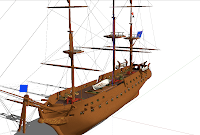
"I bought my first musical when I was ten- West Side Story. It’s my go-to movie when I’m sick, sad, lonely, or even angry. I’ve watched it so many times that I can tell you minute details and funny facts about the movie and the actors. For instance, Schrank and Krupke work out of the 21st precinct in New York City and the Jets won their turf from a gang called the Emeralds. Many of the actors in the movie also performed in the Broadway version, but usually in different roles. Anita in the movie played Maria in the London production. I could keep going. For some reason, I keep coming back to it. Especially the end, when Maria is yelling at the boys about killing each other with hate and pointing the gun at them. Then, she is cradling Tony and whispers “Te adoro Anton”. She’s wearing a red dress and stays still kneeling on the pavement when they carry him away. Baby John comes up and puts her scarf over her hair (which always felt a little awkward). Finally, she gets up and walks out of the playground with an impeccable poker face. And the credits roll. That final image of her face and walking away in that red dress haunts me. What happened to her? How did she wake up the next morning? And the next? Could she go to the funeral? Did she cry in front of others or did she detach for awhile? In my mind I’ve played out her life a thousand and four times. First, the sluggish first days, weeks, and months when she’s numb and sad and a little angry. The days she wakes up and can’t pull herself out of bed, but turns over and cries into the shirt he left in her room. The days she goes to Doc’s store and can’t remember what she was going to buy because Tony is all around her. Does she forgive Anita or does she pull away from her friends while they are trying to reach out? Because they didn’t understand in the first place. No one did. I wonder if she stays in New York or moves to escape the surroundings of that night. Does she become bitter or forgiving? I wonder if she falls in love again. Yeah, mostly I wonder the last one. After all, she was only fifteen or sixteen, and many argue that you don’t even know what love is at that age, much less understand it. Others claim that time heals all wounds- that in time she would open up and love again. Personally, I don't think she ever stops loving Tony so she can't love someone else the same way. You know, it’s so much harder than Romeo and Juliet. Both of them die in the end anyway. No loose ends, no couples torn apart. Dying for someone or because of them is certainly a momentous decision. But living on without them and living for them, is a lifetime of meaningful choices alone."
It was a good writing day, so I wanted to share some more : )









